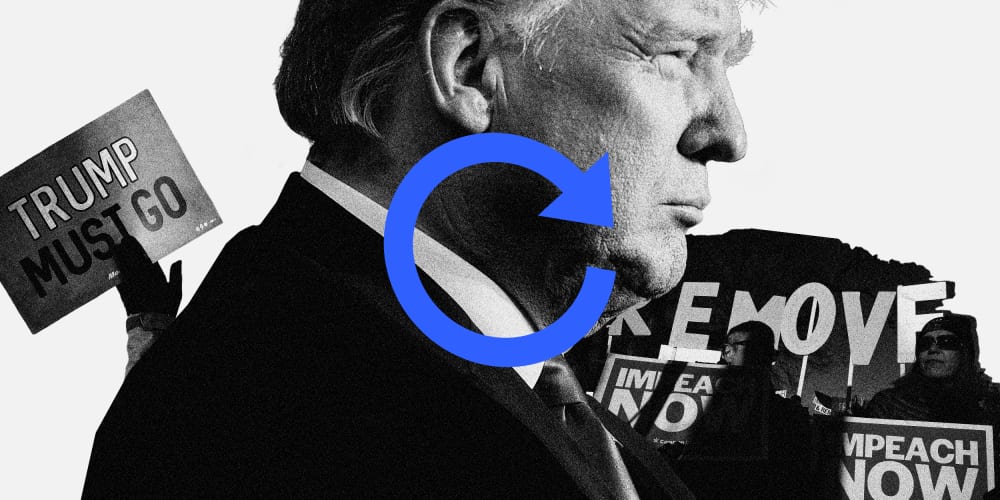President Donald Trump is leaving the White House in January, and he seems determined to exploit and abuse every power of the presidency he can on his way out.
The clemency he offered up recently for convicted war criminals, corrupt former members of Congress and members of his extended family were bad enough. But most disturbing were his pardons of his political allies Paul Manafort and Roger Stone, both of whom were convicted as a result of Robert Mueller’s Russia investigation.
If Trump was merely trying to erase the Mueller probe with pardons, he also would’ve pardoned Rick Gates and Michael Cohen, both convicted (both cooperated or testified).
— Elie Honig (@eliehonig) December 28, 2020
But if Trump was only trying to reward those who refused to testify, he’d leave them out — as he has done.
Once seated, the next Congress should immediately begin the second impeachment of President Donald Trump for abuse of power and obstruction of justice. I don’t mean this as a symbolic gesture. If it is kicked off in 2021, the impeachment process may — just may — be able to prevent Trump from running for office again in 2024.
Once seated, the next Congress should immediately begin the second impeachment of President Donald Trump.
A House panel could make short work of the investigation, given the ample evidence gathered in both Mueller’s investigation and the Senate Intelligence Committee’s investigation into the 2016 election, which concluded this year. Mueller’s report listed 10 instances that might qualify as obstruction of justice, one of the generally agreed-upon high crimes and misdemeanors that can get a president impeached. That included, as it turns out, dangling pardons in front of potential witnesses.
Mueller believed he was unable to charge Trump as a sitting president — but he strongly hinted that Congress should look into his findings. “The Constitution requires a process other than the criminal justice system to formally accuse a sitting president of wrongdoing,” Mueller nudged Congress in May 2019.

His team did charge Stone and Manafort, though. Its investigation looked into Stone’s connection to the Russian hack of the Democratic National Committee, finding that he was in contact with the invented online persona that claimed credit for the email theft. Stone also had inside information about WikiLeaks’ publishing schedule. He was convicted last year of seven charges, including witness tampering and making false statements.
Meanwhile, the Republican-led Senate panel’s report found that Manafort, while chair of the Trump campaign, provided a Russian intelligence asset with internal information. The polling data and strategies Manafort shared are likely to have been used in the Russian influence campaign that helped swing the election to Trump. Manafort was jailed on tax-related charges in 2018.
Trump’s pardons of Stone and Manafort are clear rewards for their loyalty.
Trump’s behavior toward the people in his orbit under investigation is clear. Compare his praise for Stone with his exile of his former lawyer Michael Cohen for his perceived betrayal. His pardons of Stone and Manafort are clear rewards for their loyalty.
“I will never testify against Trump.” This statement was recently made by Roger Stone, essentially stating that he will not be forced by a rogue and out of control prosecutor to make up lies and stories about “President Trump.” Nice to know that some people still have “guts!”
— Donald J. Trump (@realDonaldTrump) December 3, 2018
The presidential pardon power is near absolute. But in the event of its abuse, one of the few options provided to counter it would be impeachment, Chief Justice William Howard Taft once suggested. I argued just a few weeks ago that it’s too late for that — but I’m not so sure anymore.
Let’s say the House opens an impeachment inquiry in the early days of the new Congress, before Trump leaves office. And say this investigation lasts beyond Trump’s term. It will be months into President Joe Biden’s time in office before articles of impeachment are filed and voted on. But wouldn’t that then make the impeachment moot, because removal from office is no longer the punishment?
Maybe not. Under the Constitution, the possible punishments for an impeached official are limited to two: removal and disqualification from ever holding office again. No monetary fines, no jail time; political crimes are met with political repercussions.













